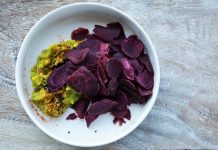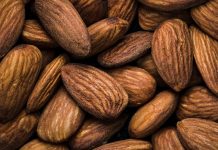
Hypertension, also known as high blood pressure, is a common health condition that affects many people worldwide.
When our blood pressure is consistently high, it puts strain on our heart and blood vessels, increasing the risk of heart disease, stroke, and other complications.
While medication and lifestyle changes play a crucial role in managing hypertension, paying attention to our diet is equally important.
The Sodium Story: Less is More
Sodium, commonly found in table salt and processed foods, is a well-known culprit when it comes to raising blood pressure.
Consuming too much sodium can cause the body to retain water, leading to increased blood volume and higher blood pressure.
Research Evidence: Sodium and Hypertension
Numerous studies have highlighted the link between high sodium intake and hypertension. A meta-analysis of 34 trials found that reducing sodium intake lowered blood pressure in both hypertensive and normotensive individuals.
Another study showed that a moderate reduction in dietary sodium could have a significant impact on lowering blood pressure.
Steering Clear of Sodium-Rich Foods
To manage hypertension effectively, it’s essential to identify and avoid foods that are high in sodium. Here are some common culprits to watch out for:
- Processed Meats: Deli meats, bacon, sausage, and hot dogs are often high in sodium and should be limited or avoided.
- Canned Foods: Many canned goods, including soups, vegetables, and beans, are packed with sodium for preservation. Opt for low-sodium or no-salt-added varieties.
- Condiments and Sauces: Ketchup, soy sauce, salad dressings, and other condiments can be sneaky sources of sodium. Look for low-sodium alternatives or use herbs and spices to flavor your meals.
- Fast Food and Restaurant Meals: These often contain excessive amounts of sodium due to seasoning, sauces, and hidden ingredients. Prepare meals at home using fresh ingredients whenever possible.
The Hidden Offenders: Added Sugars
While sodium plays a significant role in hypertension, added sugars can also impact blood pressure levels indirectly.
Diets high in added sugars are associated with weight gain, insulin resistance, and inflammation, which can contribute to elevated blood pressure.
Research Evidence: Added Sugars and Hypertension
Studies have demonstrated a link between increased consumption of sugary beverages and higher blood pressure.
One large-scale study found that individuals who consumed more sugar-sweetened beverages had a higher risk of developing hypertension.
Choosing the Right Carbohydrates
In addition to added sugars, the type and quality of carbohydrates we consume can affect blood pressure.
Highly processed carbohydrates, such as white bread, white rice, and sugary cereals, can lead to blood sugar spikes and weight gain, both of which can worsen hypertension.
Research Evidence: Carbohydrates and Hypertension
Research has shown that adopting a diet rich in whole grains, fruits, and vegetables can help lower blood pressure.
Whole grains are packed with fiber, vitamins, and minerals, and their consumption has been associated with a reduced risk of hypertension.
Alcohol and Hypertension: Moderation is Key
While moderate alcohol consumption may have some health benefits, excessive intake can have detrimental effects on blood pressure.
Research Evidence: Alcohol and Hypertension
Numerous studies have found a positive association between alcohol consumption and hypertension. Excessive alcohol intake can raise blood pressure and increase the risk of developing hypertension.
It’s important to limit alcohol consumption to moderate levels or avoid it altogether, especially for individuals with hypertension.
Conclusion: A Balanced Approach to Hypertension
Managing hypertension requires a comprehensive approach, and dietary changes play a vital role in achieving blood pressure control.
By being mindful of sodium-rich foods, reducing added sugar intake, opting for whole grains and fresh produce, and moderating alcohol consumption, we can make positive changes to support our cardiovascular health.
It’s important to consult with healthcare professionals or registered dietitians for personalized advice and to develop a well-rounded plan to manage hypertension effectively.
Remember, small dietary modifications can lead to significant improvements in blood pressure control and overall well-being.
Follow us on Twitter for more articles about this topic.
Copyright © 2023 Scientific Diet. All rights reserved.








